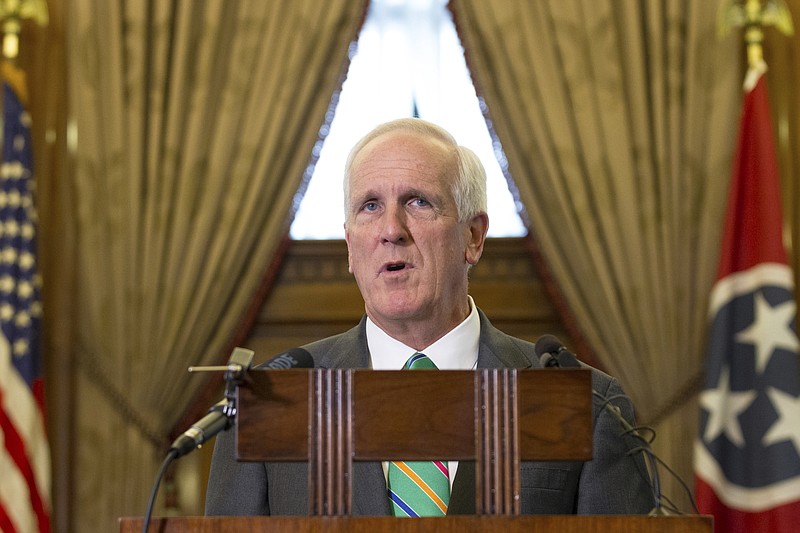NASHVILLE - Tennessee Attorney General Herbert Slatery announced Tuesday the state's new law banning most abortions is set to take effect Aug. 25.
Slatery said the move comes after the U.S. Supreme Court, which released its opinion overturning Roe v. Wade on June 24, issued its formal judgment in Dobbs. v. Jackson Women's Health Organization.
Tennessee's "trigger" law, passed in 2019, makes the act of providing abortion services a felony in most cases unless it is to save the life of the woman or prevent irreversible harm to her. Even in that case, the law places the burden of proving the procedure was allowed on the medical provider - as opposed to requiring a prosecutor to prove it was prohibited.
Last week, Tennessee Senate Health and General Welfare Committee Chairman Rusty Crowe, R-Johnson City, told legislative colleagues the General Assembly may need to revisit and "fine tune" the state's near-total ban on abortions over that provision.
Doctors have expressed concerns that they are at legal risk of being forced to prove their actions were justified in court even when they acted to save the life of the pregnant woman or prevent irreversible harm, Crowe said.
In his statement on Tuesday, Slatery said he is notifying the Tennessee Code Commission of the effective date for the new law, the Human Life Protection Act.
In his letter to Tennessee Supreme Court Chief Justice Roger Page and other members of the Tennessee Code Commission, Slatery notes the decision is "restoring to the states their authority to prohibit abortions."
Under the 2019 law, a licensed physician could be criminally charged for performing any abortion after fertilization, even if it was intended to save the life of the woman or to prevent irreversible harm. A woman's mental health cannot be taken into account. The woman cannot be charged.
If charged, a physician would be required to prove by a "preponderance" of evidence that the procedure was necessary to prevent the death or serious risk and irreversible impairment of a major bodily function of the pregnant woman. That is known as an "affirmative defense," or shifting the burden of proof to the doctor to prove he or she acted within the law, as opposed to a prosecutor having to prove he violated it.
Physicians who are convicted face prison terms of three to 15 years.
The U.S. Supreme Court on June 24 overturned Roe in a 6-3 ruling in the Dobbs v. Jackson Women's Health Organization case.
Nashville emergency physician Katrina Green at a June news conference said she feared emergency physicians such as herself will no longer be able to refer patients who need an abortion to a facility where they can obtain one "safely within our state" without facing criminal charges.
The exception about the life of the mother is a "term deliberately vague enough to give many doctors and health care workers pause," Green said. "What does the 'life of the mother' exception really mean? How threatened must someone's life be before we can intervene and help them medically?"
She cited as an example ectopic pregnancies, in which the fertilized egg implants itself outside a woman's uterus.
"I've seen a case report of an ectopic pregnancy in someone's liver," Green noted. "These pregnancies are not viable. Contrary to the belief of some politicians, there is no medical way to salvage them or reimplant them into the uterus. Eventually, an ectopic pregnancy will grow large enough to rupture the organ in which it is growing and cause the patient to hemorrhage."
Crowe acknowledged such concerns last week, questioning charges against a physician "if you're taking action medically to help the young lady or the mother in that regard."
In June, state Rep. Mike Stewart, a Nashville Democrat and attorney, called Tennessee's abortion law extremely problematic for doctors.
"That's the problem with this speedy effort to change all of our laws," Stewart told the Times Free Press. "You know, a doctor cannot violate statute without putting his or her license at risk.
"Every time a physician is faced with some potential problem - for example, an ectopic pregnancy - the physician's going to have to think extremely carefully before potentially subjecting himself or herself to some district attorney making the discretionary decision to file criminal charges."
Contact Andy Sher at asher@timesfreepress.com or 615-255-0550. Follow him on Twitter @AndySher1.

